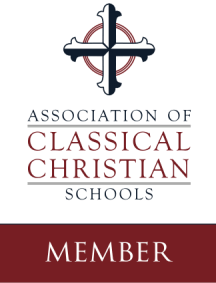Sarah holds her Bachelor of Arts degrees in both Secondary Education and Social Science from Benedictine College. Prior to joining SCA, Sarah taught middle school History and Theology at Frassati Catholic Academy. Her passion for classical education, methodology, and curriculum began in high school when she attended Ridgeview Classical School in Fort Collins. Studying in Florence, Italy, in college further deepened her love for history, culture, and the Western Judeo-Christian tradition.
Sarah and her husband were married in January of 2020. They enjoy hiking, camping, and exploring new places together. Their faith, family, and friends are most important to them.
Sarah shares her love for Christ naturally with her students. Her joy of learning is contagious as she teaches.
Sarah’s Philosophy of Education
Solid education combines classicalism, constructivism, and the philosophies of Thomas Aquinas. Classicalism incorporates Great Books curricula and the root beliefs of Western Civilization. This is taught in the Trivium of Grammar, Logic, and Rhetoric at appropriate ages of development in a pupil’s life. Constructivism postulates that all learning spirals back on previous learning, so that one’s education builds on itself naturally. Lastly, following Thomas Aquinas, humans ought to study what is good, true, and beautiful to reach their end goal of knowing intimacy with God.
Although differing in cultural expression, all humans are ultimately created by God to know, love and serve Him. In school, students and teachers might know God in part by seeking what is true, noble, and beautiful in their studies. For this, curriculum should be truthful and worthwhile, be that practical or appreciative, and balance the humanities, hard sciences, reason, faith, art, creative expression, and physical exertion. Teachers might incorporate images of great art, beautiful poetry, or the wonders of nature to inspire their students to seek beauty and truth in their lives. By constructing new knowledge on past learning, lessons might be deeply experienced and integrated. Curriculum and assignments should follow the order of the Trivium so the level of difficulty is appropriate to the student’s development.
Learning also comes from example. Teachers should model Christlike behavior and teach moral lessons with love and logic to demonstrate the dignity, love, and respect given to each person and exemplified by Christ to his contemporaries. This must be done consistently, both within and without the classroom; positive relationship building with students and the community is key. Implicit curriculum should promote Christian philosophy and virtues, such as sharing and respect. Lastly, opportunities for service and social interaction will foster cooperation and conscientiousness so students and faculty can love God by loving each other. Combined, these practices will help students and teachers cultivate a relationship with God, an undying love of learning, virtue, and respect for others.





